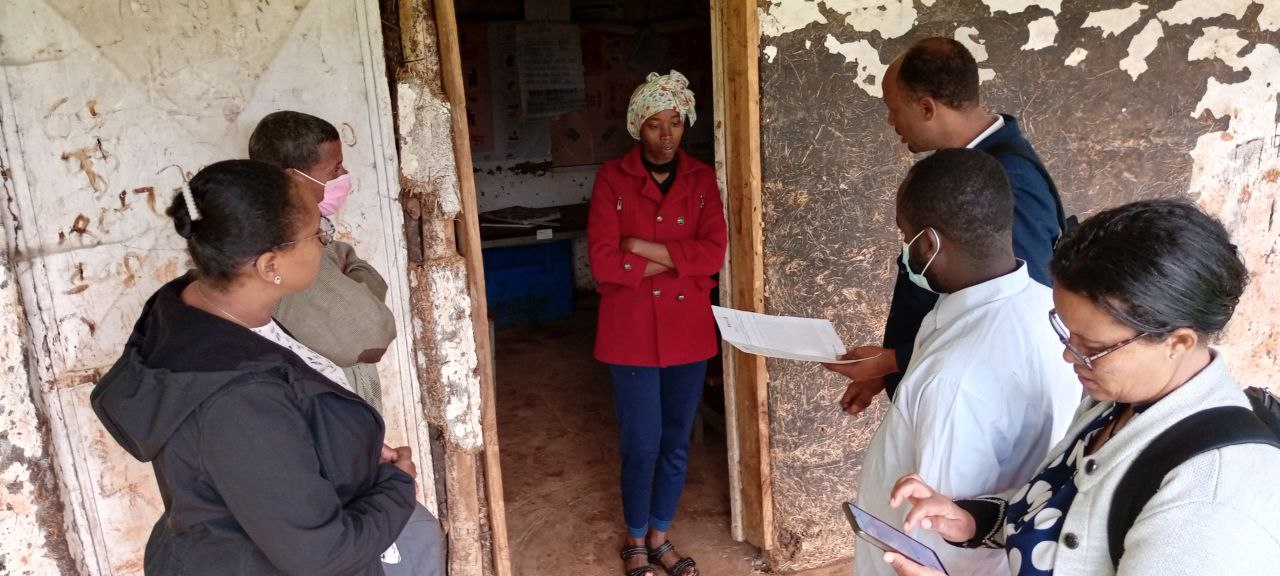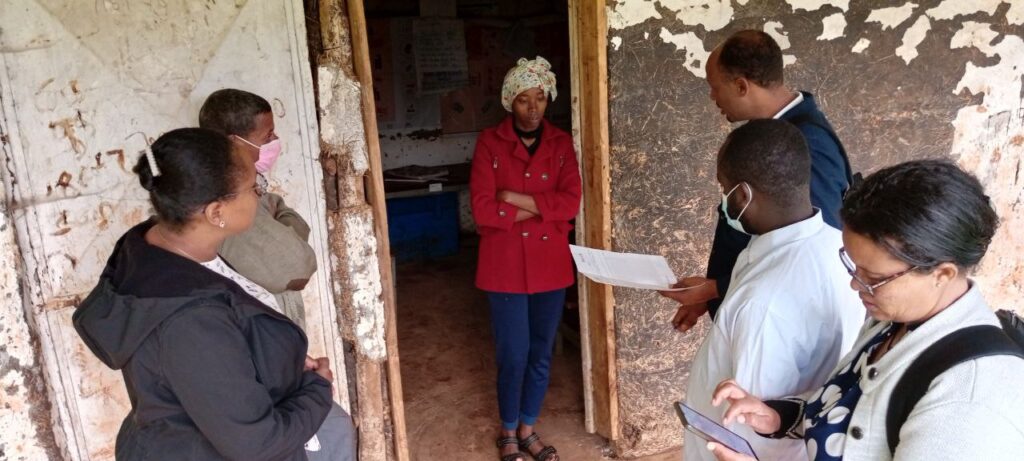South Ethiopia Region – June 2025 – In a significant move to combat the rising threat of drug-resistant tuberculosis (DR-TB), KNCV Ethiopia, in partnership with the South Ethiopia Regional Health Bureau (RHB), has successfully established new Patient Support Groups (PSGs) at five key Treatment Initiating Centers (TICs): Dilla, Sodo, Sawla, Jinka, and Arba Minch. This initiative is part of the UNITAID-funded ASCENT DR-TB project and aims to revolutionize patient-centred care and drastically improve treatment outcomes for those affected by TB.
About the Patient Support Groups (PSGs)
The PSGs, formed by volunteers, will provide a crucial platform for people with TB to share experiences, discuss challenges, and find collective solutions. A cornerstone of this approach is the integration of DR-TB and drug-sensitive TB (DS-TB) survivors as volunteers. Their invaluable lived experience offers critical peer-to-peer support, psychosocial support, encouraging treatment adherence, helping to manage emotional well-being, and combating stigma.
These volunteers, supported by TB officers from respective TIC, will extend their efforts beyond the centres, actively engaging in community-level initiatives such as stigma reduction campaigns, experience sharing and counselling, contact tracing, promoting TB preventive treatment (TPT), and raising public awareness about TB.
Orientation Session of the PSGs
During the event, comprehensive orientation was given for the established PSG members (52 members, comprising 35 males and 17 females) from diverse professional backgrounds, including teachers, healthcare providers, students, drivers, and religious leaders.
The comprehensive orientation session, focused on equipping PSG members with essential knowledge and skills:
- Understanding TB/DR-TB: Deepening participants’ understanding of the disease, the importance of treatment adherence, and the consequences of non-adherence.
- Psychosocial support and stigma: Providing psychosocial support training and strategies to reduce stigma and discrimination within patient communities and the broader society.
- Peer empowerment: Fostering a culture of mutual support and empowerment among group members.
- Addressing barriers: Identifying and strategizing to overcome obstacles to accessing care and maintaining adherence.
- Defining roles: Clearly outlining the roles and responsibilities of the PSGs.
A key highlight was the inspiring experience-sharing session by Mr. Kitaw Teklemariam, a DR-TB survivor and founder of “Organic Health Care,” who shared his personal journey and insights on overcoming the disease and associated stigma.
Each TIC’s PSG successfully elected a chairperson and secretary, ensuring effective leadership and communication within the groups and with TIC staff. These leaders will co-facilitate community activities, patient counselling, and supervision at Community Follow-up Centres (CFCs).
Discussions involving representatives from the Regional Health Bureau, Zonal Health Departments, TIC staff, and the ASCENT DR-TB project underscored the profound significance of these PSGs. Participants emphasized that these groups are not merely support networks but vital associations dedicated to combating TB, contributing to reductions in incidence, mortality, and the catastrophic costs associated with the disease. Mr. Kitaw encouraged the newly formed groups to formalize their associations and establish communication with national organizations like “Organic Health Care” and other CSOs for future collaboration and experience sharing.
Impact of PSGs
The establishment of these patient support groups marks a critical step forward in the collective fight against TB in South Ethiopia, empowering people with TB and building a more resilient, supportive community in the journey towards a TB-free future. It will also be a lesson to establish similar groups in other TICs and create a strong coordination and partnership among themselves.


